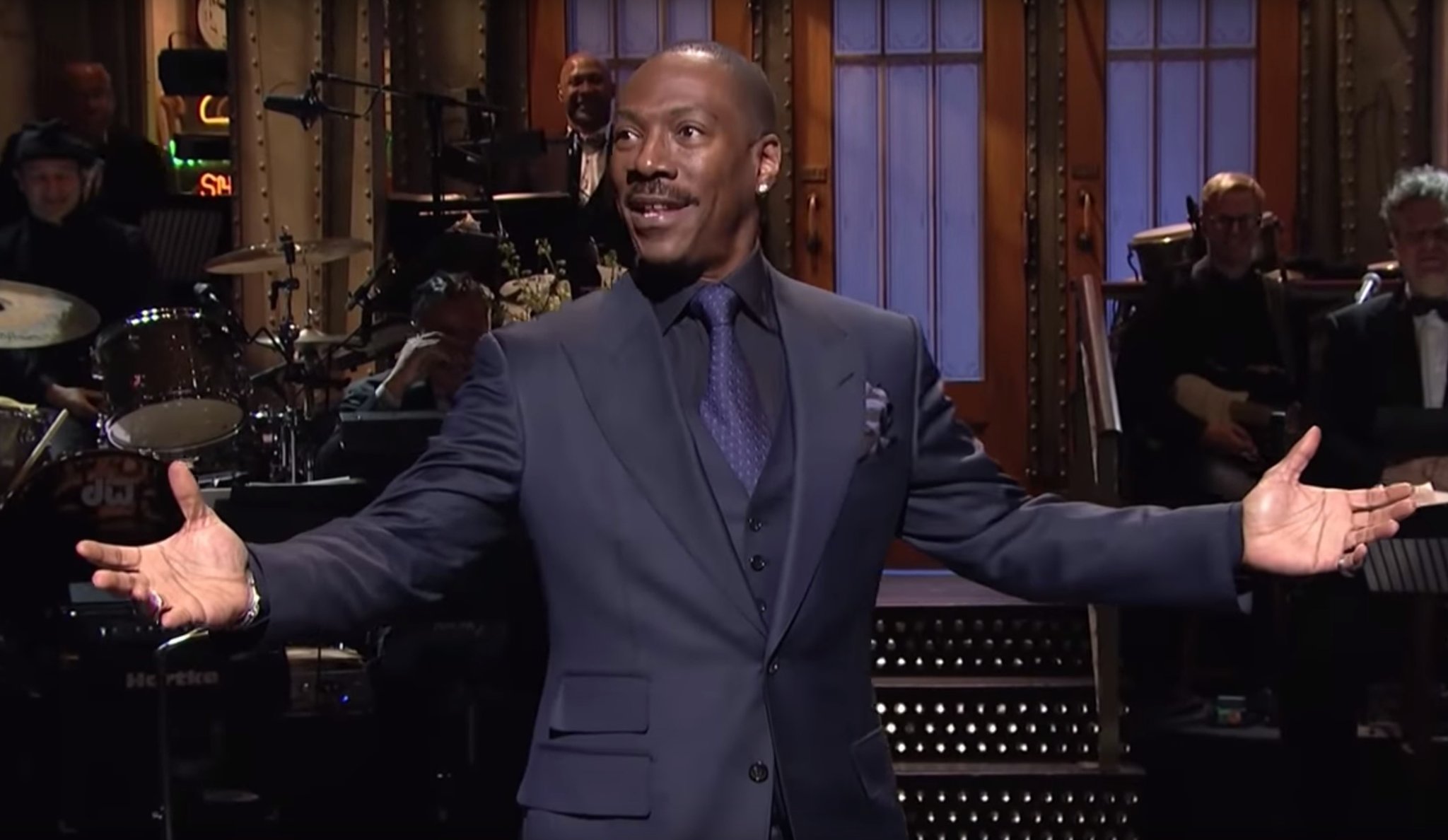For decades, Black comedy has kept changing.
It went from “chitlin’ circuit” obscurity to a cable spotlight, from minstrel-show clamor to Chappelle sophistication. It went from the triumphs of Bill Cosby to the tragedy of Bill Cosby; it also went from the rage of Dick Gregory to the joy of Eddie Murphy (shown here) … and then back to rage.
Now a documentary tries to sum it up in four crowded hours. “Right to Offend: The Black Comedy Revolution” debuts from 9-11 p.m. June 29 on A&E; that part repeats from 7-9 p.m. June 30, leading into the conclusion from 9-11 p.m.
Winding through this is a possible inequity: White comics – from Bob Newhart to Jerry Seinfeld and beyond – are simply allowed to be funny, with no one demanding a deeper meaning; Blacks are sometimes frowned on if they don’t address racial issues.
There was the time in the 1980s when pop culture was led by Michael Jackson, Whitney Houston and Bill Cosby. “They’re all non-threatening,” Todd Boyd, a University of Southern California professor dealing with race and pop culture, says in the show.
For Black comics, amiability is sometimes seen as a character flaw. In the film, people go out of their way to find small bits of substance amid the just-fun years of Murphy or Flip Wilson; Wayne Brady defends his own persistent pleasantness.
Not to worry; life kept finding new unpleasantness to spur comedy. The ‘80s bubble was followed by the Rodney King beating, the 1992 riots and topical comedians. “There’s nothing more horrifying than a bunch of poor white people,” Chris Rock said then. “They’re confused: ‘How did I get this way?’”
Rock has a sweet countenance and, at times, cutting words. “I like the audience to be slightly appalled every now and then,” he says in the film.
His 1996 routine, using the “N word” to show two kinds of people, became a classic. Much later, he reflected on the statement that Black men are an endangered species: “That’s not true, because endangered species are protected by the government.”
That was in 2018, during a fresh comedy era. “ ‘Trump time’ was ‘wow time’ for Black people who were funny,” comedian Amanda Seales says in the film.
There have been previous times that enraged Black comics. Gregory soared in the early ‘60s, working nightclubs and TV shows … then set comedy aside to focus on activism. Others worked the fringes. Black comedians found the “chitlin’ circuit” of small clubs, plus other venues. Redd Foxx had made 52 “party records,” before white audiences discovered him.
Then Pryor broke through, with a personal, storytelling style that rippled with pain and sharp language. He triumphed in stand-up, in movies and on “Saturday Night Live” (co-writing the sketches himself), but his own NBC show imploded after five episodes.
By then, producer Norman Lear had crafted Black hits with “The Jeffersons” and more … despite flaws. The documentary has Jimmy Walker discussing playing J.J. in “Good Times.”
As Walker tells it, director John Rich told him to say “Dynamite” as loudly as possible. “I said, ‘John, people are not that stupid.’ He said, ‘Yes they are.’”
That became a catchword and J.J. became a favorite, despite sharp criticism.
At the time, these were Black shows with white producers; a change was coming. “We don’t have to wait for somebody to give us permission,” Robin Thede says in the film.
She created “A Black Lady Sketch Show.” Others made “Chapelle’s Show,” “Atlanta,” “Insecure,” two Chris Rock shows, “Def Comedy Jam,” “In Living Color,” “Abbott Elementary” and many more – including “Right to Offend,” a Kevin Hart production that views Hart’s comedy ancestors.
